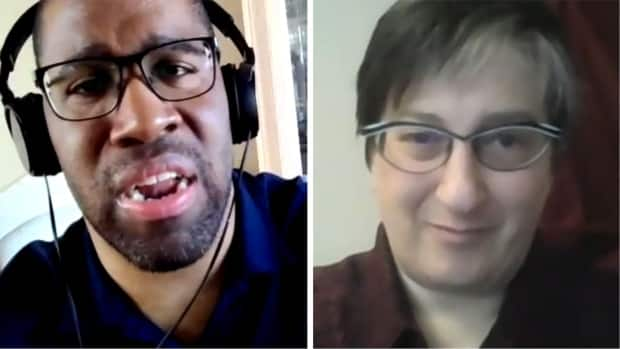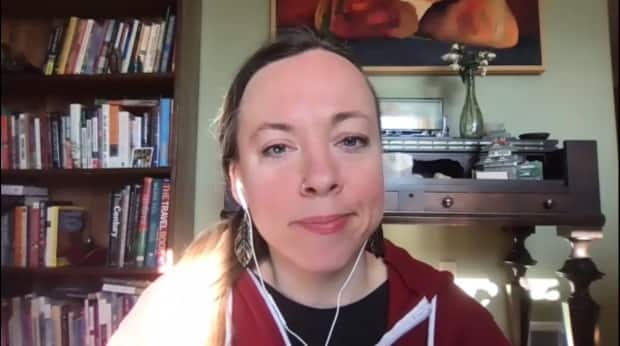Disabilities community in Ontario wonders when they can get vaccinated

As vaccine rollouts accelerate in Ontario, those in disability communities are still wondering why they have not been prioritized.
Windsor disability advocate Kevin McShan says prioritizing disabled people for vaccination is important due to many having more vulnerabliities to COVID-19.
"Certainly for people with disabilities they're in a higher risk group, so we would hope that it [vaccination] would be faster than it's been."
Currently there is no vaccination timeline by the province for those with disabilities outside congregate settings.
McShan has spastic quadriplegic cerebral palsy which some studies have shown put people with the disability at higher risk for respiratory complications from COVID-19.
Over one in five Canadians live with a disability, yet questions remain as to why those with disabilities are still waiting to get vaccinated and waiting to learn where they fit on the priority list.

On Tuesday, Theresa Marentette, the Windsor-Essex County Health Unit's CEO and chief nursing officer was asked about a potential vaccination timeline for people with intellectual and developmental disabilities. She said that the supply and delivery of vaccines is an important factor and that the unit is waiting and hoping for more direction.
Across the border
In Detroit, the vaccination roll-out has garnered the attention of disability groups who are lauding the city's wide eligibility for people with certain disabilities.
Dessa Cosma is the executive director of Detroit Disability Power, an organization that led a letter-writing campaign pushing for the city to include people with disabilities in vaccination, which it has as of February 11th.
"We started organizing almost a year ago now, to protect our community," says Cosma, describing how she and others in disability communities knew they would have to advocate early on in the pandemic to get better supports.

When it was announced that Detroit would open vaccination for residents over the age of 18 with intellectual and developmental disabilities, Cosma says it was a relief.
"Organizers with disabilities like myself are extremely proud to have had this major win."
In some respects, Detroit is leading the U.S. with equitable vaccination which includes disabilities like cerebral palsy, attention deficit hyperactivity disorder (ADHD) and types of visual and hearing impairments.

Phase 2 in Ontario
Phase 2 of Ontario's vaccination roll-out is expected to run between April and June. But the prioritization has been received with confusion over who among disabled communities can get vaccinated.
In a statement to CBC News, the Ministry of Health was not able to provide a timeline for those with disabilities.
The province added it is using an approach that will ensure that the vaccine gets to the "most vulnerable first, who have higher risk outcomes from contracting the virus and are at a higher risk of spreading the virus."
When further asked if the ministry would begin gathering data related to COVID-19 deaths, hospitalizations and recoveries of those with disabilities, it responded that data collection has grown throughout the pandemic.
But it did not specify whether this data would involve COVID-19 statistics related to the general population of people with disabilities.
What is in a definition?
Tova Perlmutter is a dual Canadian-U.S.citizen and currently lives in Windsor. With the border closed, she has been unable to cross into Detroit to even have the opportunity to get vaccinated.
However, from Windsor, Perlmutter has been contributing heavily as a disability activist to push for Detroit to widen its vaccination roll-out. After seeing some success in the U.S. city, Perlmutter says she still is unsure why Ontario's vaccine roll-out has been sluggish in addition to being confusing.

"It looks like they're talking about serving a bunch of different groups but it doesn't say what those conditions are or how they would apply — a definition should include people with a wide range of disabilities, developmental, intellectual and others."
The defining of disabilities matters given that Perlmutter has general anxiety disorder and ADHD. She sees them as "invisible disabilities" and does not know in what capacity they would ever be considered in vaccination priority.
Had Perlmutter been in Detroit, she would have fallen under the eligibility for a vaccine, which clearly includes ADHD as a qualifier.
Where is the data and why does it matter?
There is little information about the number of people in the province who have disabilities and have contracted or died from COVID-19.
In a statement to CBC News, the Ministry of Children, Community and Social Services said that since the start of the pandemic, there have been 699 cases and 23 deaths of adults with developmental disabilities diagnosed with COVID-19 at ministry-funded residential settings.
The ministry said it is working with a research institute to look at infection trends among those with disabilities.
But the lack of information is troubling for experts like Dr.Yona Lunsky who is a senior scientist with the Centre for Addiction and Mental Health (CAMH).

Lunsky's expertise is in developmental disabilities where she directs a research partnership that aims to improve the health of people living with developmental disabilities.
"If we don't have the data, because we haven't collected it, then we don't have that science right to inform our decision making,"
One study that has shown how stark the disparity is between disabled and non-disabled people during the pandemic, comes out of the U.K. from the Office for National Statistics.
The independent institution found that from January 2020 to November 2020, six in ten COVID-19 deaths were people with disabilities. Putting that into further perspective, over 30,000 disabled people lost their lives to the virus. Yet they only made up 17 per cent of the population.

Dr. Zain Chagla an infectious diseases specialist at St. Joseph's Hospital in Hamilton says that disabilities are incredibly nuanced but there are some common risks to be aware of.
"Often their disability does give them comorbidities, if people have neurological disabilities, they often have cardiac or respiratory complications from them."
Chagla also notes the catch-22 in trying to maintain public health guidelines but still needing outside help to accomplish necessary tasks.
"It makes it very difficult for people to follow a stay at home order and unfortunately have to expose themselves for the sake of their own health care maintenance."
Deciding vaccination priority can be tricky when the severity and types of disabilities start becoming compared, as Chagla notes, since there will be varied levels of risk of dying from COVID-19.
Looking to the future
In Canada, certain provinces like B.C. and Saskatchewan have started including specific underlying health conditions or opening vaccination for "adults with very significant developmental disabilities that increase risk."

